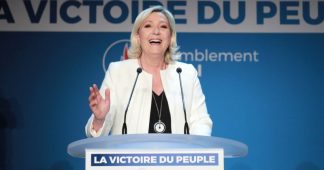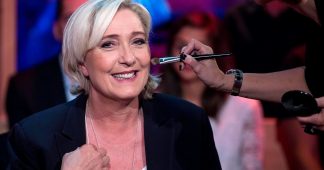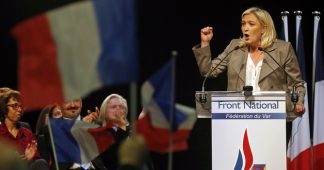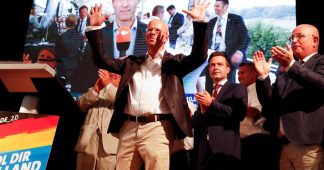By Anne Damiani and Mathieu Pollet
7 Απρ 2021
With France’s regional and presidential elections already looming on the horizon, Marine Le Pen’s right-wing Rassemblement national (RN) seems to want to rework its roadmap. On the agenda: more ecology, but no more return to the franc.
Since her failure in the 2017 presidential elections, Le Pen has been working on her ‘presidentialism’, continuing her quest to win the Elysée.
“The de-demonising has been underway for several years. It is a constant process,” said Juliette Grange, professor of philosophy at the University of Tours, interviewed by EURACTIV France.
After the ascent to power of Emmanuel Macron and his République en Marche destabilised the political spectrum and the traditional right/left divide, the RN has been portraying itself as the main opposition party.
“Le Pen is trying to position herself by making counter-proposals to every major project of Emmanuel Macron,” Grange pointed out. And the voters, it seems, are paying attention.
An Ifop poll published at the start of April revealed that Le Pen would receive 28% of votes in the first round, ahead of Macron (24%). In October, the score was 24% for Le Pen against 23% for the current president.
Furthermore, Le Monde noted on Monday (5 April) that the RN has become the leading party in terms of popularity among 25-34-year-olds.
The regional elections on 13 and 20 June will be a litmus test for the sovereignist party.
“All elections are a springboard, the RN should win one or more regions to show what it is capable of,” said Fabien Engelmann, who has been the mayor of Hayange (Moselle) since 2014 and RN regional councillor for the Grand-Est region.
In his view, abandoning the idea of leaving the eurozone and the EU is a good thing.
“We can stay in the European Union, it is up to each national sovereignist party to send a maximum number of MEPs to Brussels to defend its vision,” he told EURACTIV.











